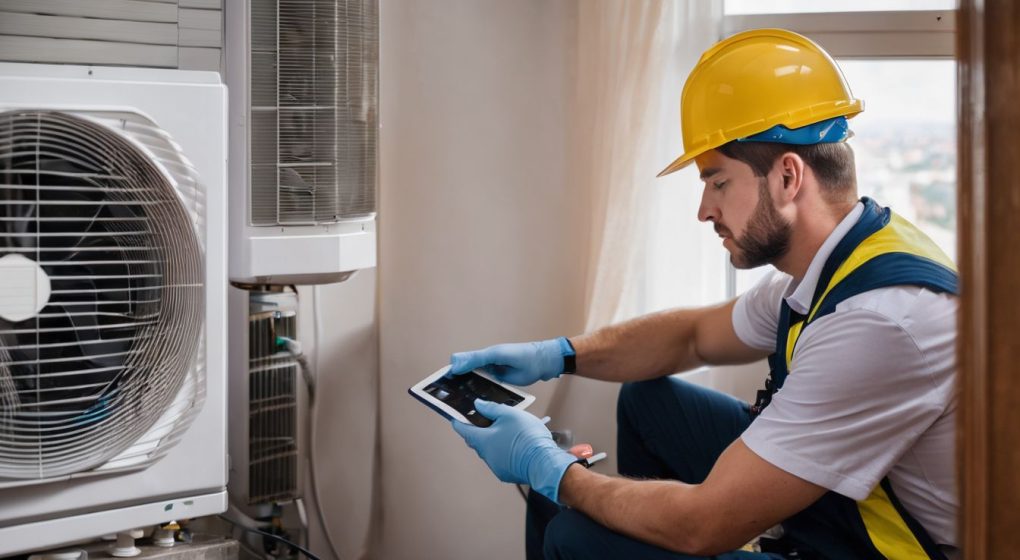
Aircon gas topping helps your air conditioner run well and stops high energy costs. It’s the process of adding coolant to your AC system. Some people think you need to top up the gas regularly, but that’s not true.
If your AC needs more gas often, it might have a leak.
Experts should handle gas topping because they know how to do it safely and correctly. Doing it yourself can be risky without the right skills and tools. Also, if you close vents in rooms you don’t use much, it won’t save you any money or help your AC work better.
Leaks are more common where it’s humid, so checking for them is important for keeping your AC working its best. While some myths say that aircon gas topping is simple, making mistakes can hurt you or break your machine.
Our article will show you what’s true and what’s not about aircon gas tops!
Understanding Aircon Gas Topping
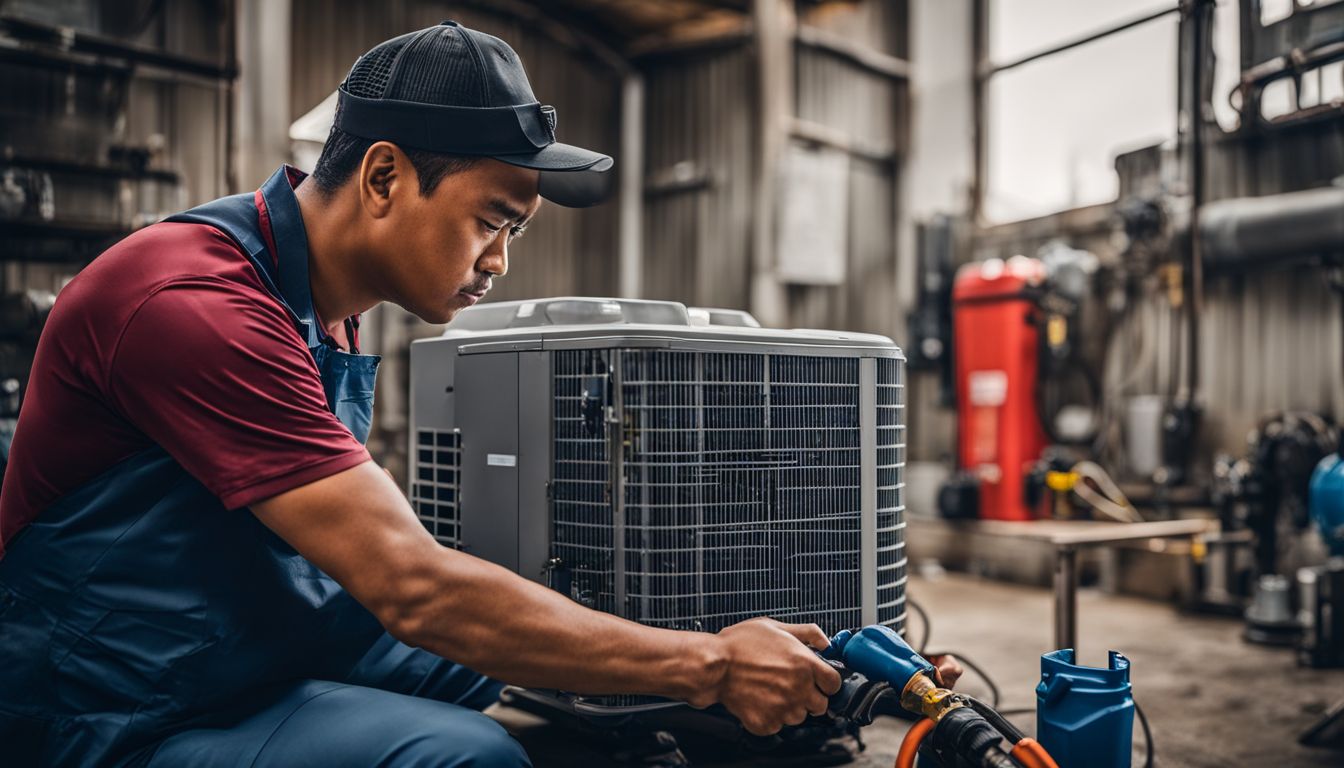
Aircon gas topping means adding refrigerant to your air conditioning system. This gas, also called refrigerant, helps your AC cool the air. Over time, this gas might leak out. When it does, the cooling efficiency of your air conditioner goes down.
It’s important to check the level of refrigerant regularly. If it gets low, you’ll need a top up to keep your AC working well. A professional technician should do this job because they know how to handle the refrigerants safely and have the right tools for it.
Using the correct type of gas is key too; whether it’s R-22 or R-410A depends on your unit.
Doing a gas top up helps prevent high energy bills caused by an inefficient AC system. It makes sure that your air conditioner isn’t working harder than necessary to cool down a room.
Regular checks and maintenance can save money over time by avoiding big repairs or energy waste.
Debunking Myths Around Aircon Gas Topping
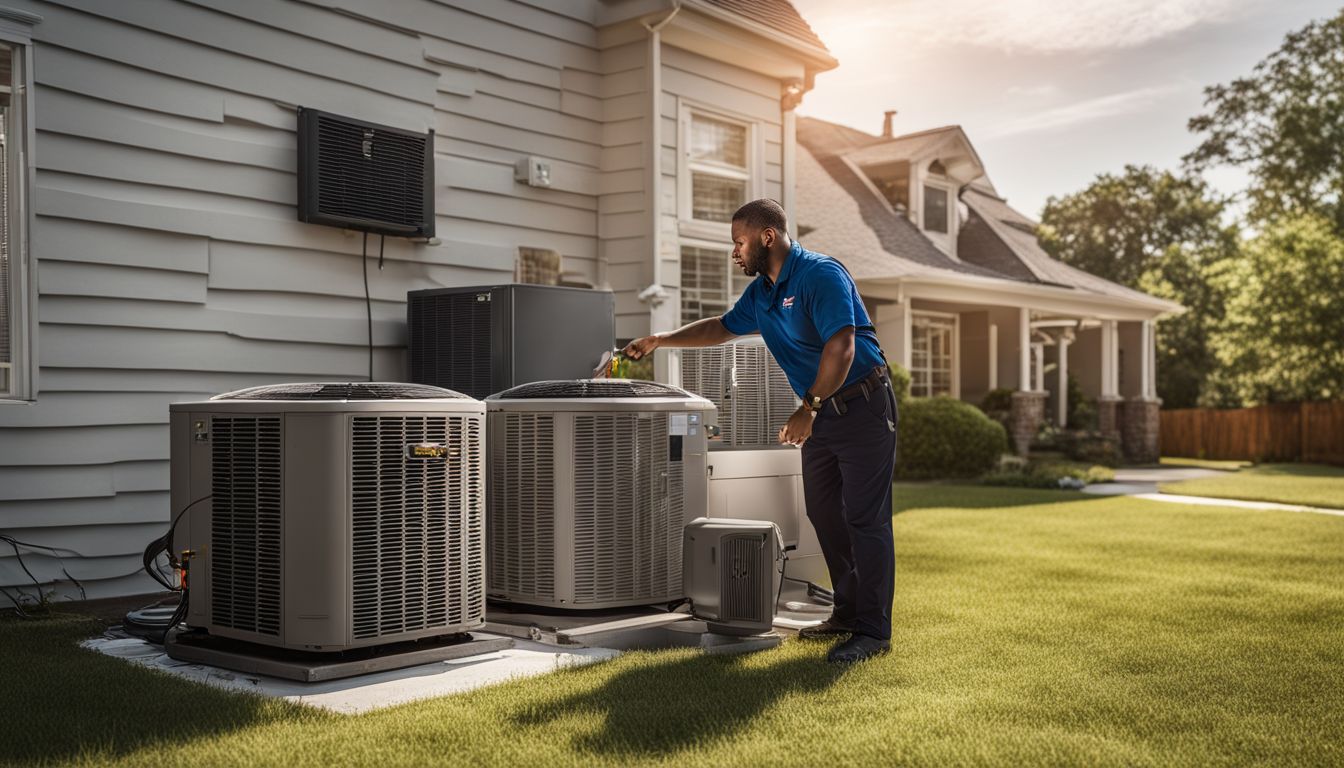
In the realm of air conditioning maintenance, misconceptions about refrigerant gas top-ups are all too common. Dispelling these myths is crucial for understanding the true requirements and impacts of ac gas topping on your system’s health and efficiency.
Not Required for Regular Maintenance
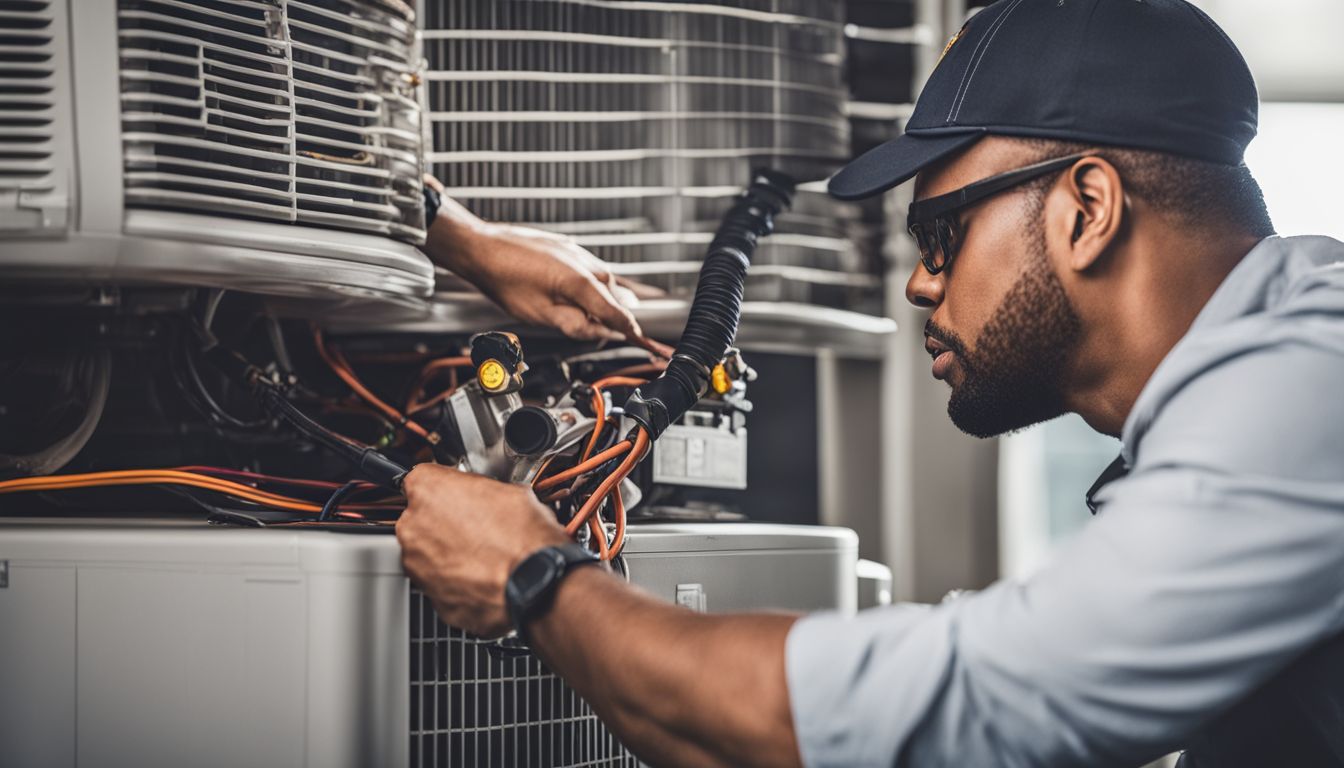
Your aircon doesn’t need gas topping as a part of its regular upkeep. Many believe that frequent top-ups are necessary to keep the unit working well, but this is not true. Air conditioners are closed loop systems.
This means they don’t use up refrigerant as fuel does in a car. If your system is sealed properly, the refrigerant should last for the entire life of the air conditioner without needing extra gas.
Only when there’s a leak or another specific issue should you consider an aircon gas top-up. It’s crucial to understand that such instances are exceptions rather than rules for routine care.
Trusting professionals with experience ensures any necessary maintenance gets done right while keeping your system efficient and reliable over time. Regular check-ups can help catch problems early, but these don’t typically involve adding more gas unless absolutely needed due to unforeseen issues like leaks.
Can Be Performed Without Professional Assistance
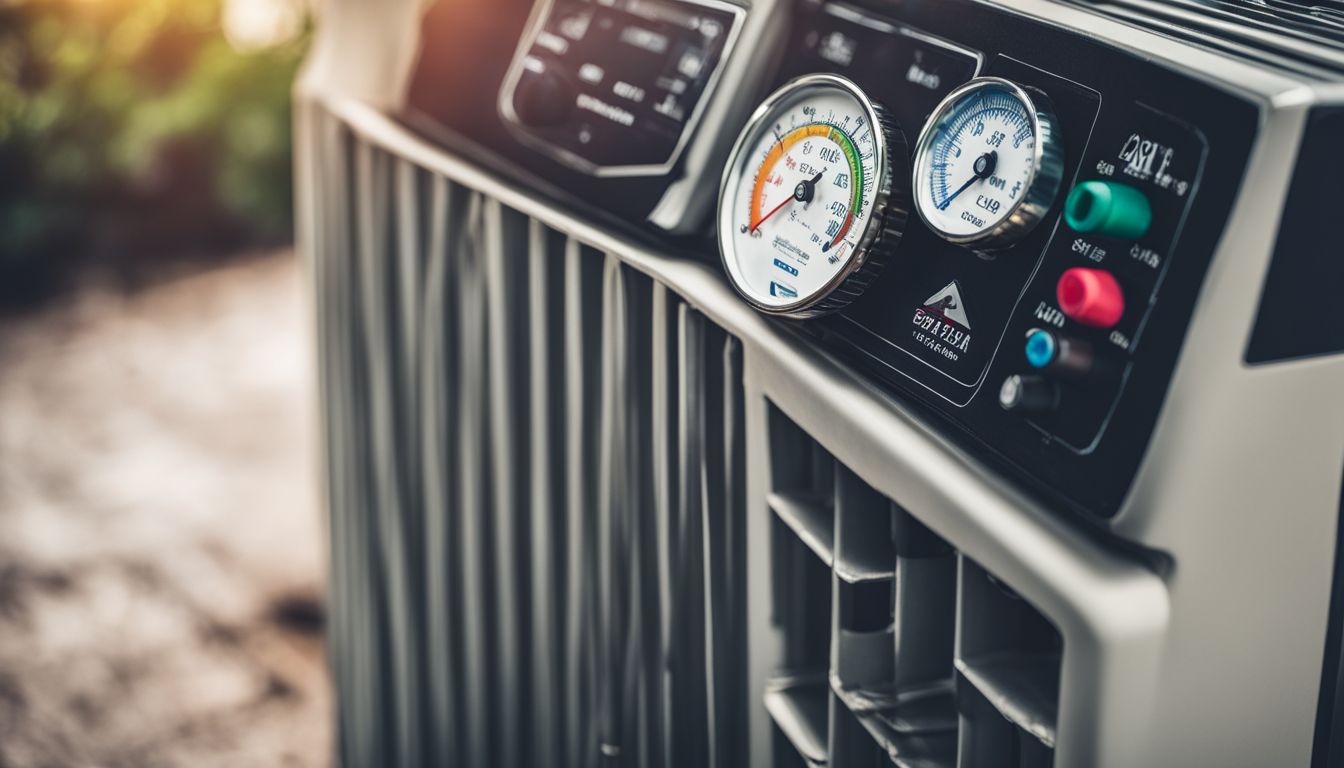
You can top up your aircon gas on your own. It requires careful attention and the right guidelines. If you understand how to do it, have the tools, and take safety precautions, a DIY approach is possible.
This way, there’s no need to wait for a professional or pay extra fees.
Proper equipment and knowledge are key to success in this task. Make sure you know what type of refrigerant your AC uses and have all necessary gear. You must handle refrigerant gases with care as they affect both aircon performance and global warming potential.
Now let’s explore how identifying gas leaks plays a crucial role in maintaining your air conditioning unit.
Irrelevant to Aircon’s Overall Performance
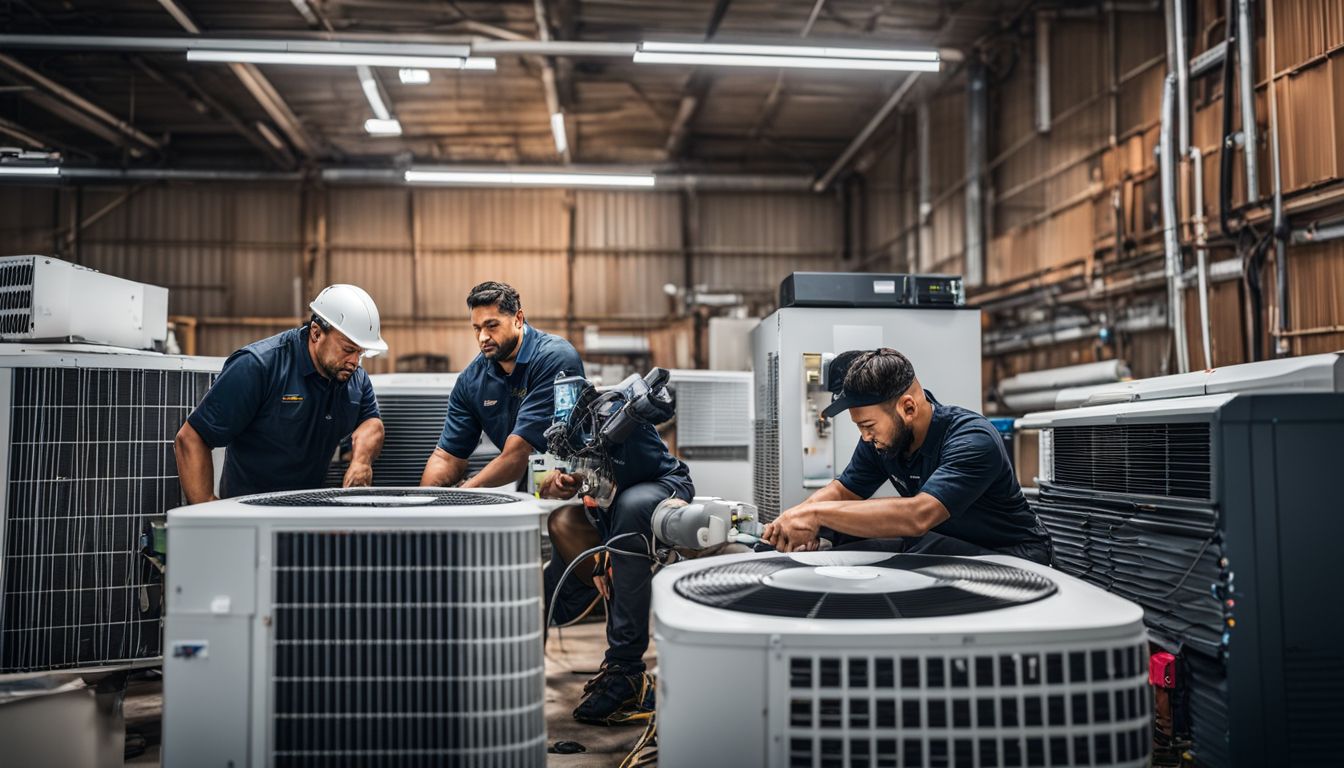
Some people think aircon gas top-up doesn’t matter for how the system works. This isn’t true. The right amount of gas in your air conditioner is crucial for its performance. Without enough gas, the unit can’t cool the space properly.
This leads to more energy use and higher bills.
Keeping the gas at the correct level helps your air conditioner do its job well. It makes sure you stay cool, and saves money on running costs too. Now let’s look into how easy it is to add gas to your aircon by yourself.
Easy to Execute
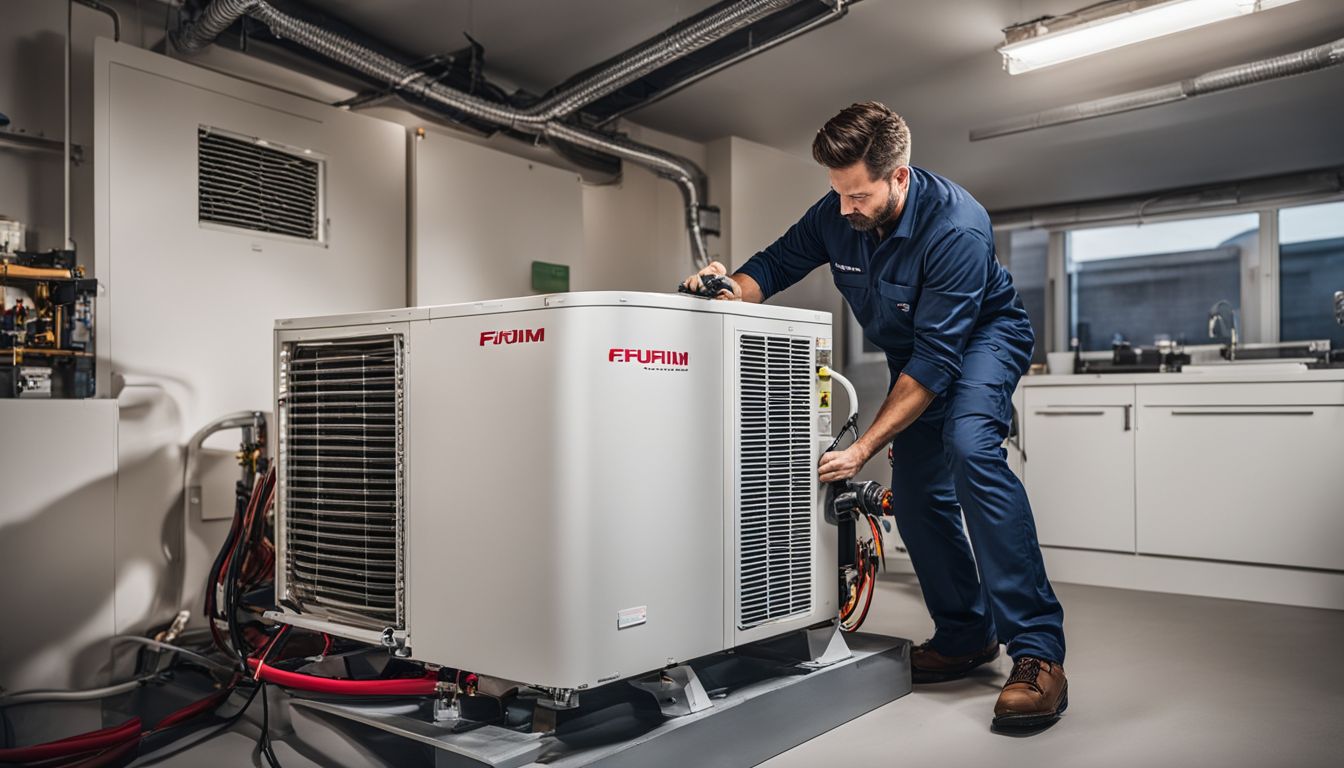
Filling up aircon gas might seem simple, but it’s not a DIY task. You need special tools and the right kind of gas, like R-32, which many modern aircons use. Professionals know how to handle these safely.
They wear safety gear and follow strict guidelines to prevent accidents or damage to your system.
Trying this on your own could lead to more harm than good. It can cause leaks or affect how well your aircon works. Hire an expert who understands the complexities of AC maintenance for peace of mind and reliable performance.
They bring experience and proper equipment for a quick and correct top up.
Unrelated to Aircon Efficiency
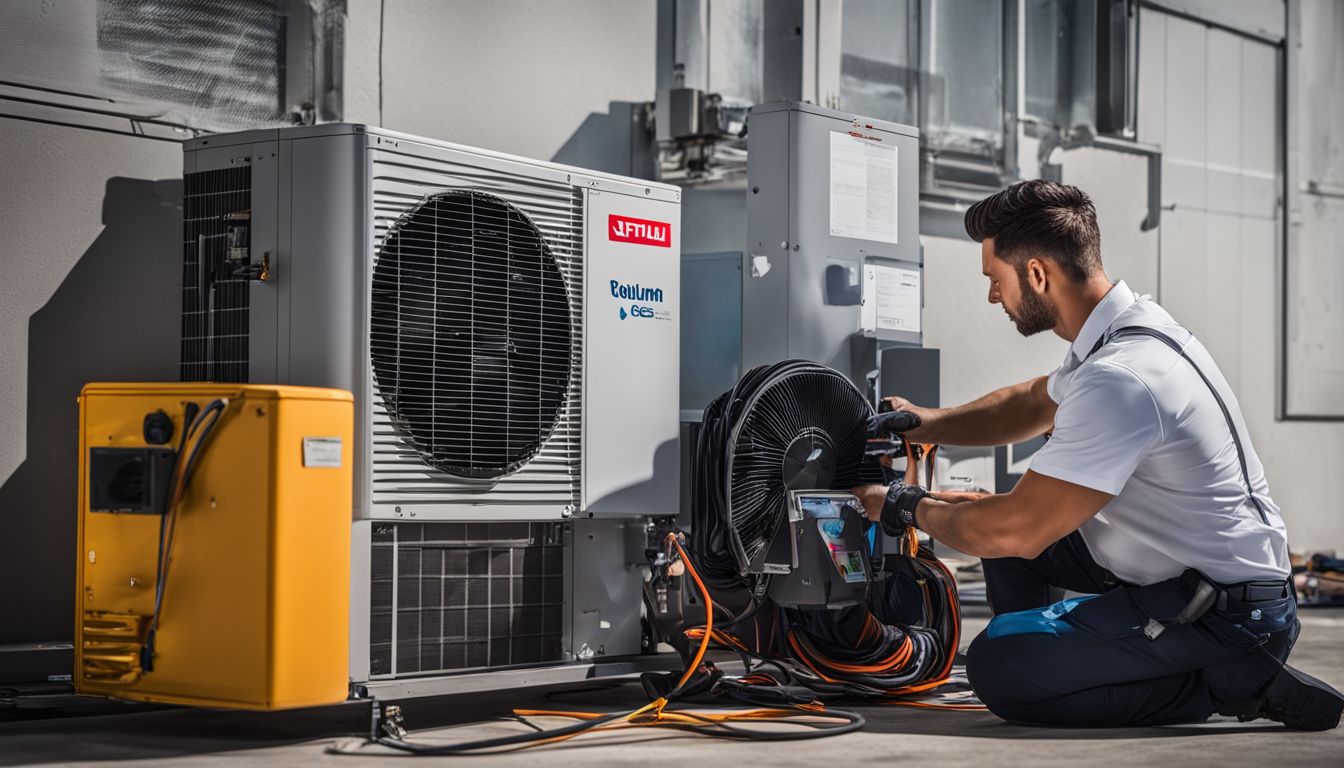
Some people think topping up their aircon gas will make their unit work better. This is not true. Aircon efficiency doesn’t just depend on the amount of gas inside. It includes many parts like fans, motors, and electrical connections working right.
If these parts have problems, adding more gas won’t help.
Aircons need the correct type of gas at the proper level to run smoothly. Too much or too little can lead to trouble and high energy bills. Always call a professional for help with your aircon gas top up to keep it running well without any risks.
Identifying and Solving Aircon Gas Leaks
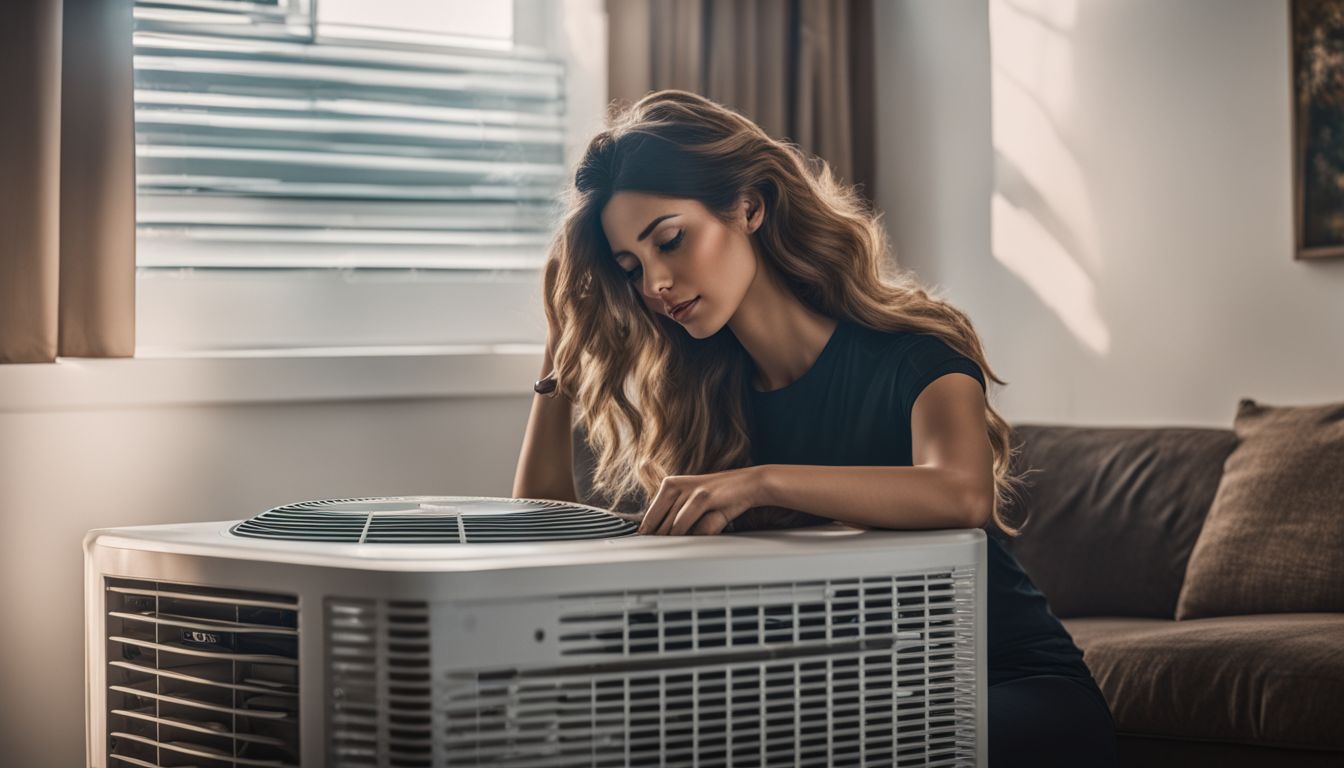
Aircon gas leaks can harm your air conditioner’s performance. Spotting these issues early helps prevent bigger problems and saves energy.
- Check for hissing sounds coming from the unit; they often signal a gas leak.
- Look for ice formation on the aircon pipes, as this indicates low refrigerant levels due to a leak.
- Notice if the aircon is taking longer to cool the room which might mean there’s not enough gas.
- Feel for warm air blowing out instead of cool; this could be because of a refrigerant leak.
- Keep an eye on increased energy bills that are unusual, since leaks make the system work harder, using more electricity.
- Use soap water on pipes to spot bubbles forming, revealing where the gas is escaping.
- Call a certified professional to inspect and repair any leaks found. They have special tools for finding and fixing them safely.
- After repairs, professionals may conduct performance evaluations to ensure everything is working correctly.
Facts about Aircon Gas Topping
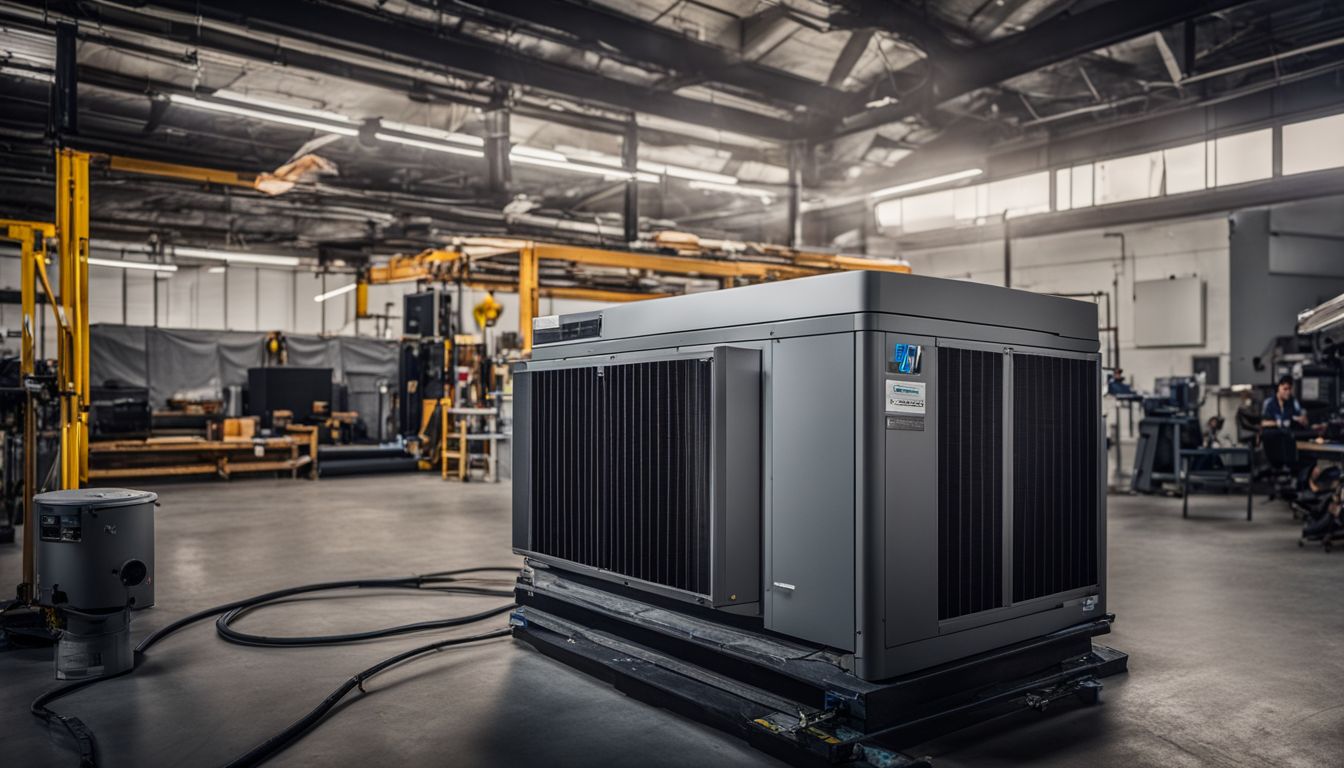
5. Facts about Aircon Gas Topping: Discover the undeniable truths behind aircon gas topping that safeguard your system’s efficiency and longevity, compelling you to consider its impact on your cooling experience; delve into the details with us.
Necessary for Optimal Aircon Function
Aircon gas topping keeps your unit running smoothly. Without enough gas, the air conditioner won’t cool a room as it should. This means you could be hot and uncomfortable on warm days.
Regular top-ups make sure the system works well and uses less electricity. Saving energy is good for your bills and helps to protect our planet.
Professionals must handle aircon gas work because they have the right tools and know-how. They will check for leaks, fix them, and fill up the gas safely. This care makes your air conditioner last longer too.
So, it’s smart to get regular checks by someone who knows what they’re doing. A well-maintained unit gives you cool air whenever you need it!
Requires Professional Handling
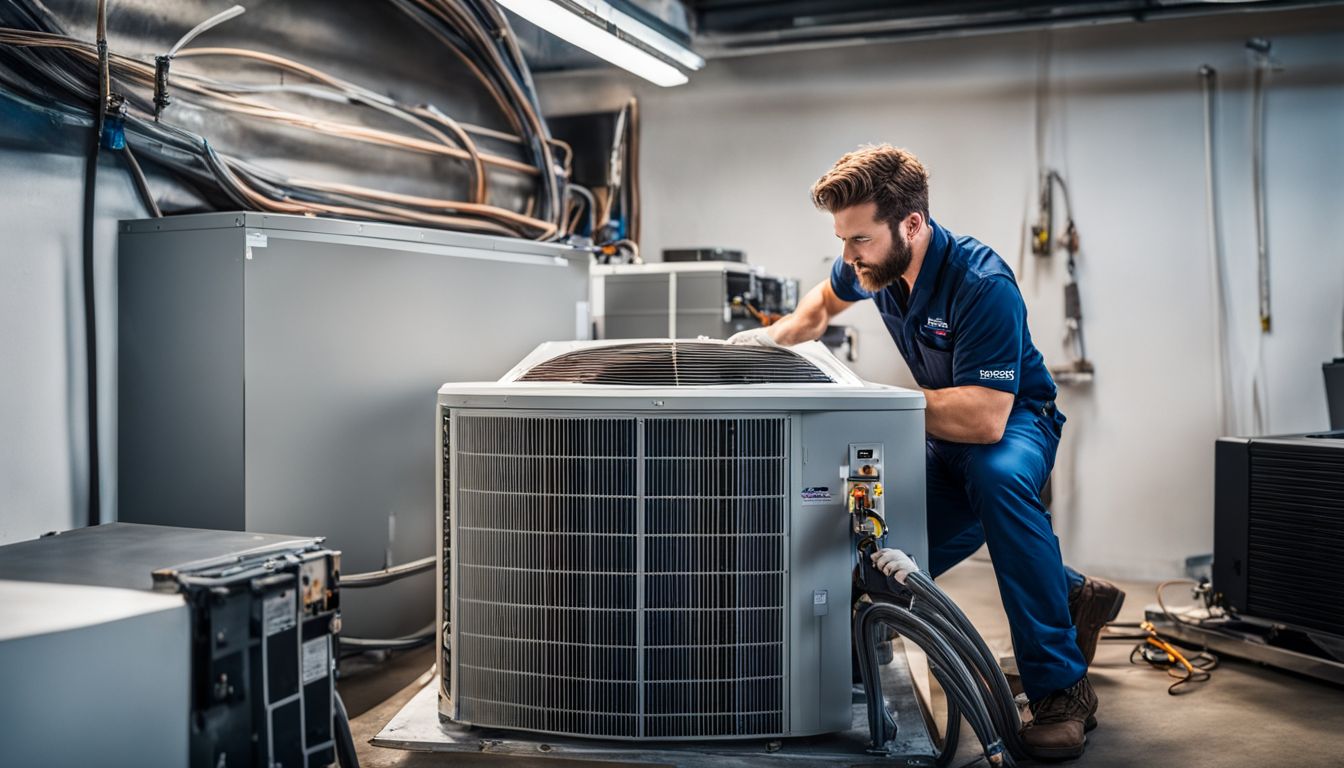
Aircon gas topping is not a DIY task. It requires skilled professionals who know how to handle the equipment safely. These specialists have been trained to work with refrigerants and understand complex air conditioning systems.
They use precise tools and techniques to ensure your system runs efficiently. Topping up the gas incorrectly can lead to accidents, harm the environment, and damage your aircon, leading to costly repairs.
Only trust qualified technicians for this job. They have the experience needed to spot any issues during service checks while ensuring safety standards are met. By hiring experts, you also make sure that your air conditioner performs at its best, saving on energy consumption in the long run.
Skilled handling means keeping both you and your unit safe from potential risks associated with amateur attempts at maintenance.
Influences Aircon Performance
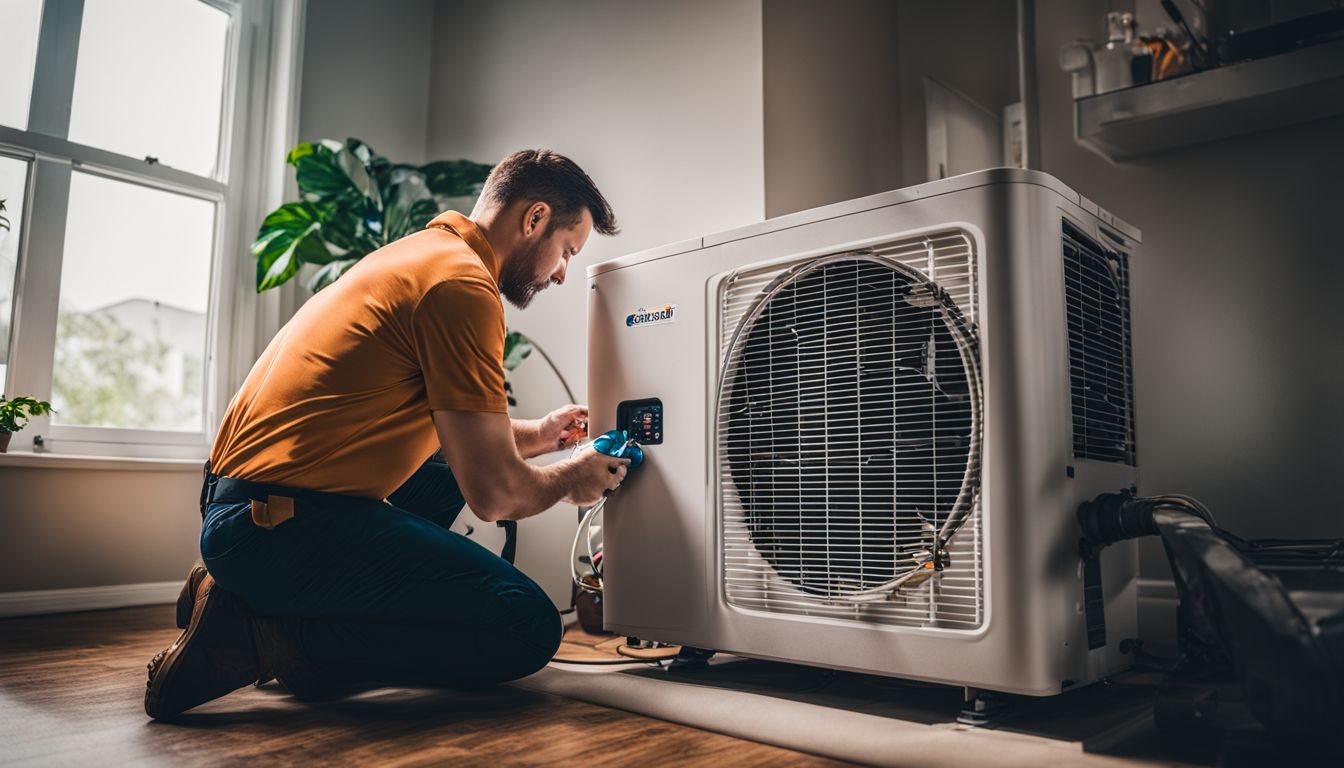
After recognising the need for professional handling, it’s clear that how well an air conditioner works is tightly linked to gas levels. Low gas means less cooling power. Aircons need enough refrigerant to transfer heat effectively from inside a room to the outside.
Topping up the gas ensures this process runs smoothly.
If your home feels warmer even when the aircon is on full blast, it might be time to check the gas. Properly filled aircon units cool rooms quickly and maintain a steady temperature.
This makes living spaces more comfortable during hot weather. Regular checks and refills can keep your unit working great all year round.
Requires Specific Knowledge and Skills
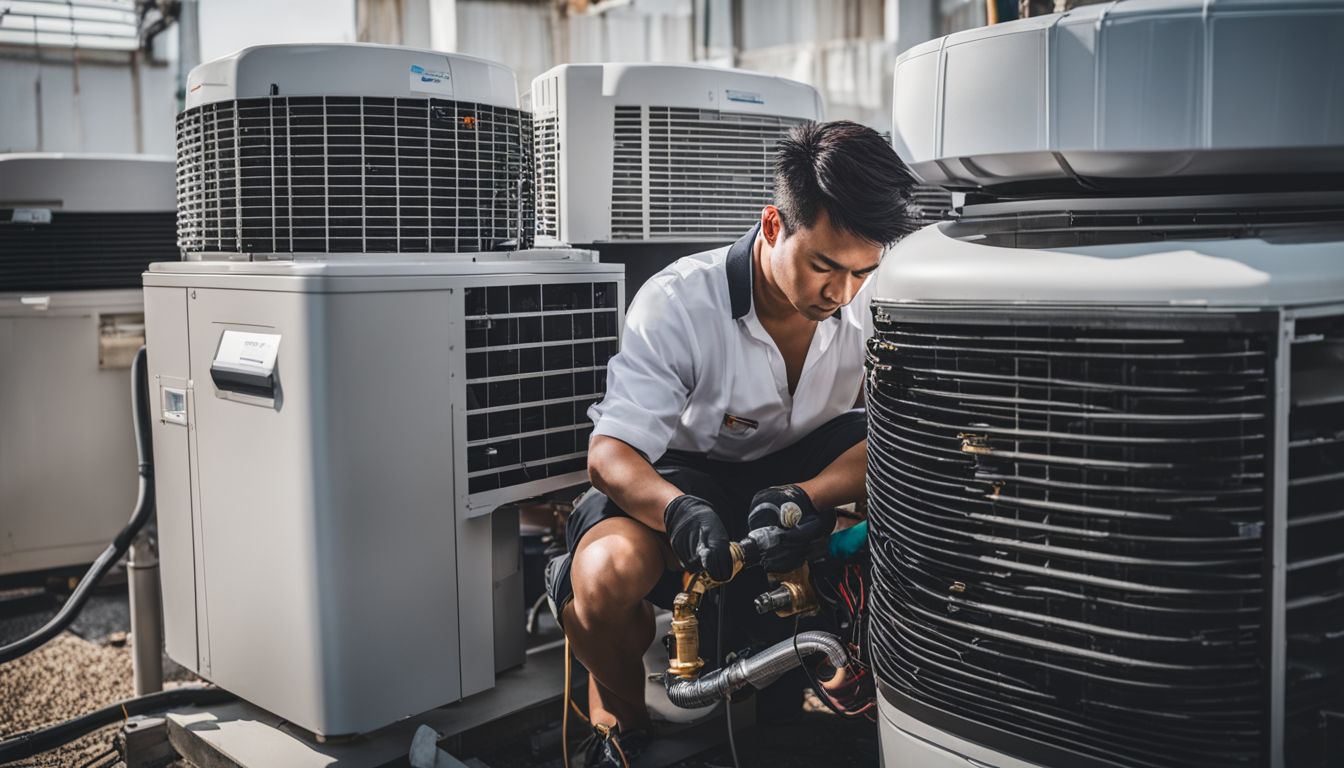
Aircon gas topping is not a simple task. It involves understanding complex components and the right way to handle refrigerants. Special tools are needed to gauge the levels, remove impurities, and ensure safety measures are followed.
Experts in air conditioning systems have trained for years to master these procedures.
Handling aircon gases incorrectly can lead to leaks or damage. A professional knows how to pinpoint the correct type of gas your system needs. They also understand how climate impacts performance.
You risk efficiency and possibly your well-being if you try it without the right skills. Always trust a trained technician with this important job for best results.
Conclusion
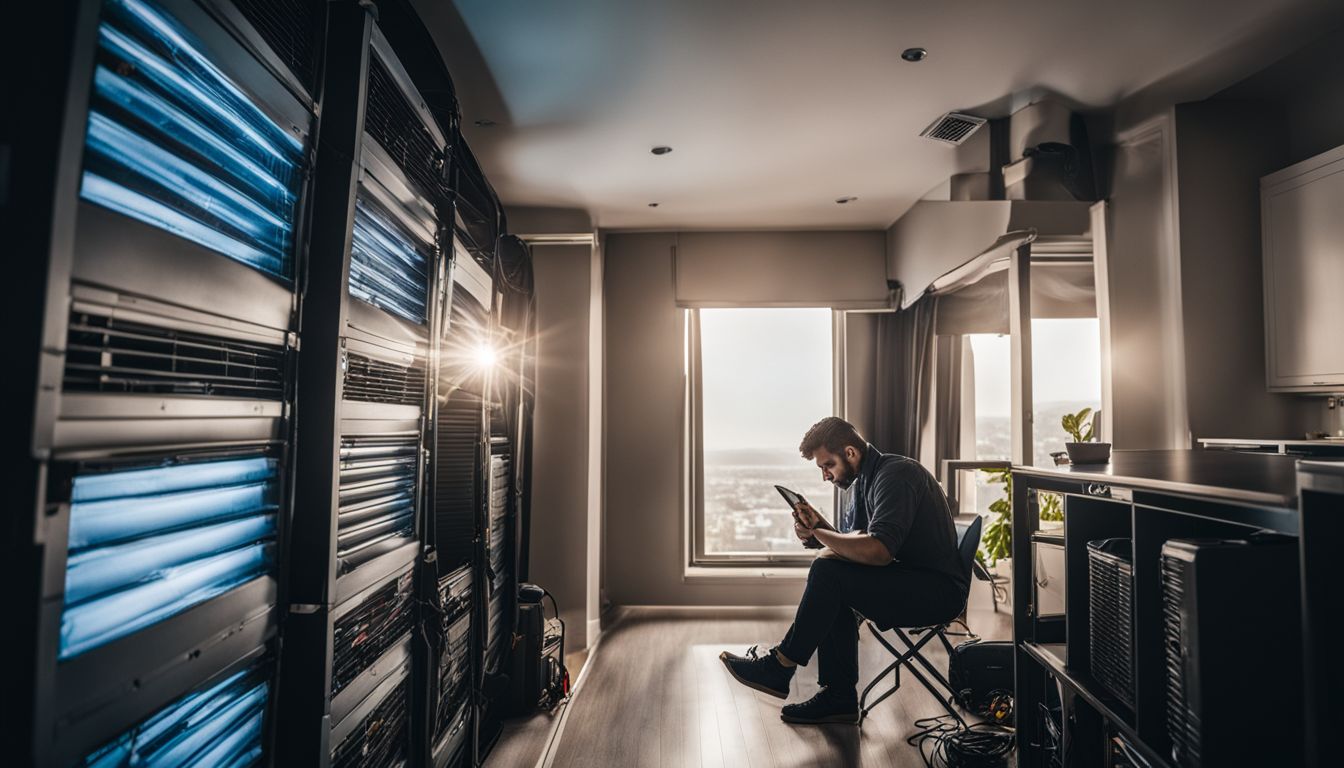
Being aware of the truth about gas topping will help keep your aircon running smoothly. Trust professionals to handle this important task for safety and efficiency. Always check for leaks instead of just adding more gas.
Keeping up with proper maintenance saves you money over time. Stay mindful of these facts to efficiently manage your cooling needs.
If you suspect your air conditioner might have a gas leak, learn more about identifying and solving aircon gas leaks to ensure your system runs efficiently.
FAQs
1. What is aircon gas topping and why is it important?
Aircon gas topping involves adding refrigerant to your air conditioning system, which is crucial for efficient energy use and maintaining cool temperatures through proper heat transfer.
2. Does regular maintenance include checking my aircon’s gas levels?
Yes, during routine aircon maintenance, professionals will check if the refrigerant level needs topping up to keep your unit running smoothly.
3. Can improper gas topping affect my health or the environment?
If not done correctly, faulty aircon gas can lead to formic acid formation or release of gases with a high global warming potential (GWP), impacting both human health and contributing to global warming.
4. How often should I get my aircon’s gas levels checked?
You should schedule checks regularly according to the manufacturer’s guidance, but annual inspections by qualified technicians are generally recommended for optimal performance.
5. Are there any signs that might indicate my air conditioner needs a gas top-up?
Notable signals include reduced cooling power, longer times achieving desired temperatures or an unexplained increase in energy bills suggesting inefficiencies potentially resolved by an appropriate gas top-up in your unit.
6. Is it more energy-efficient to replace my old unit instead of having frequent gas toppings?
Sometimes replacing an older unit with a new one designed for better energy efficiency could be more cost-effective than repeated maintenance on an outdated system struggling with consistent performance issues.
